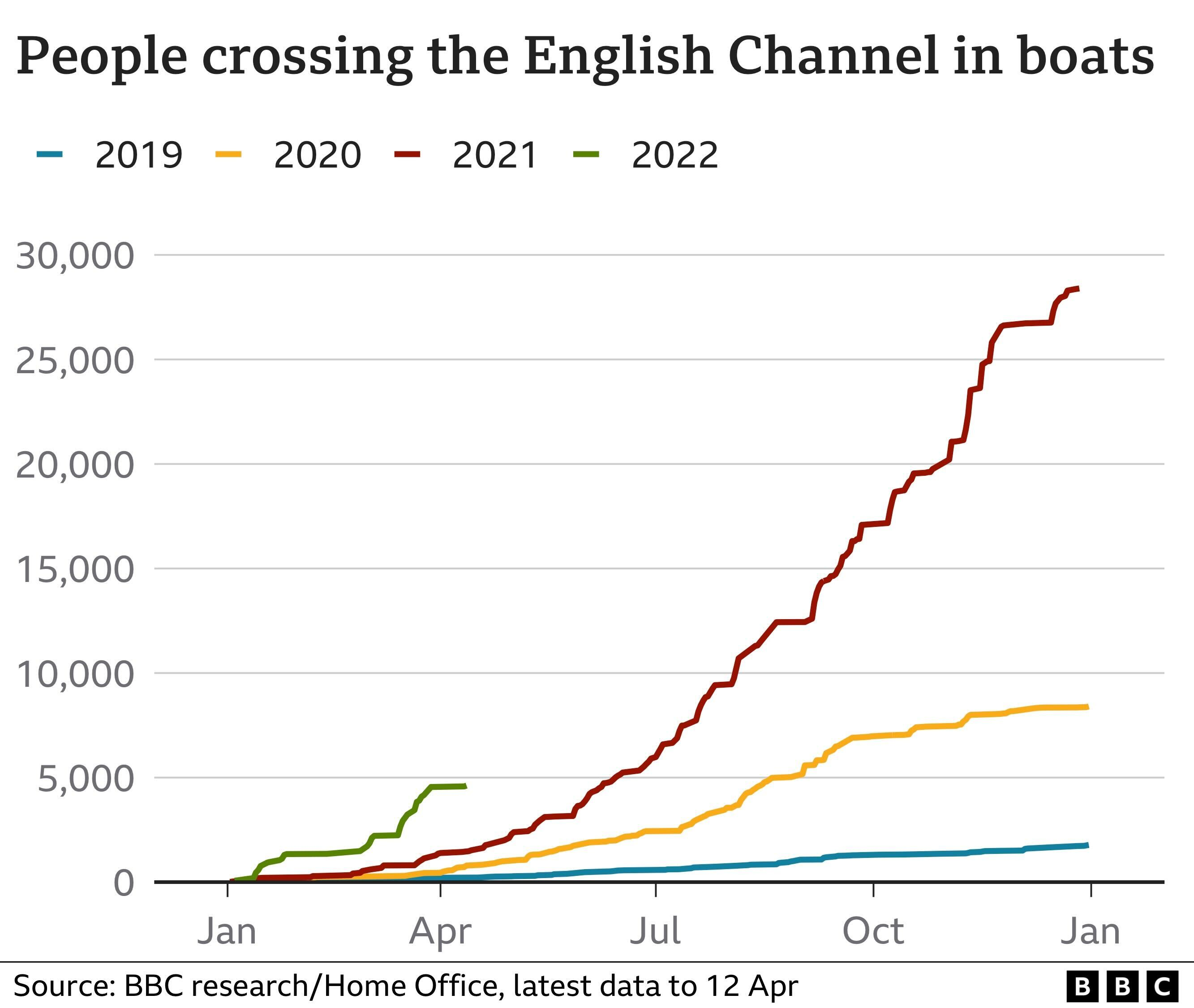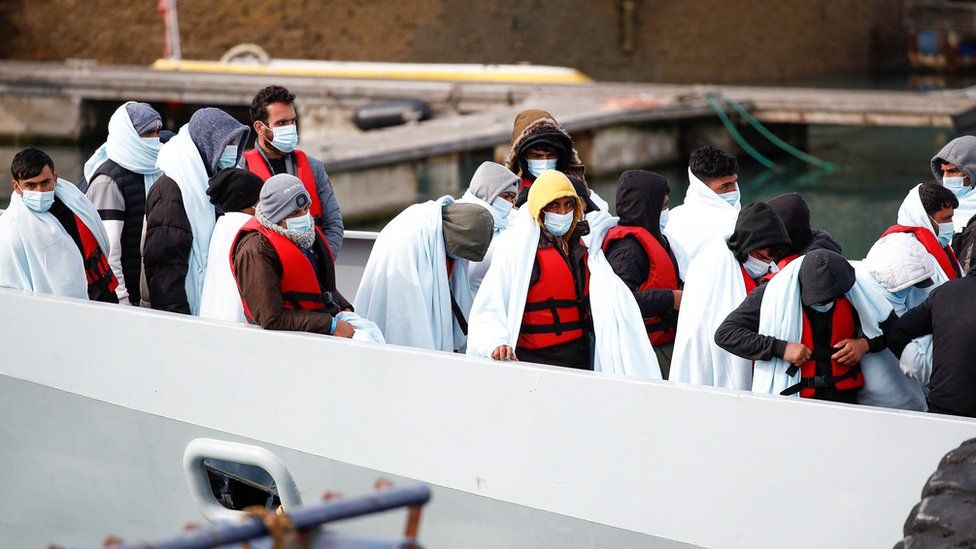The first asylum seekers could be flown to Rwanda from the UK within weeks, the government has said.
It follows the announcement of a pilot that will see people sent to the east African country to claim asylum there.
That scheme will initially focus on single men crossing the Channel in boats or lorries from France.
The prime minister has said he wants to break the business model of traffickers, but the plan has been called “inhumane” by campaigners.
Speaking to BBC Newsnight, Andrew Griffith MP – director of the No 10 policy unit – said the scheme would not require new legislation and could be implemented under “existing conventions”.
“Therefore this should be possible to be implemented and operationalised in weeks or a small number of months,” he said. “So we’re ready to go in that sense.”
He added that, if the flow of illegal migration can be stopped, it would leave “lots of capacity for the very generous safe and legal routes” into the UK.
The Rwanda scheme is part of a broader strategy to reduce the number of people entering the UK via Channel crossings in small boats.
Last year, the figure reached 28,526, up from 8,404 in 2020.
Other measures include handing responsibility for patrolling the Channel to the Royal Navy and maximum sentences of life imprisonment for people smugglers.
Tony Smith, former director general of UK Border Force, said it could be weeks before it became clear if the “radical” scheme was feasible.
He told BBC Breakfast the government would likely face a legal challenge when Border Force tried to put people on a Rwandan-bound aircraft.
“But then I’m not sure what the answer is to stopping the boats… because if we don’t do something, then more people are going to drown,” he said, adding that the UK potentially faced “the biggest asylum intake we’ve ever seen in this country”.
In a speech on Thursday, Boris Johnson said the agreement with Rwanda would provide “safe and legal routes for asylum while disrupting the business model of the gangs”.
“It means that economic migrants taking advantage of the asylum system will not get to stay in the UK, while those with genuine need will be properly protected, including with access to legal services on arrival in Rwanda,” he said.
He also said the scheme would cover anyone who has arrived in the UK illegally since the start of this year.
More than 160 charities and campaign groups have called on the government to scrap the plan, describing it in an open letter as “shamefully cruel”.
Refugee Council chief executive Enver Solomon called it “cruel” and said the scheme would do “little to deter desperate people from seeking protection or stop the smugglers but only lead to more human suffering”.
Labour leader Sir Keir Starmer said the prime minister was trying to distract the country from the Partygate scandal with an “unworkable, unethical, and extortionate” scheme.
The Lib Dems said the government was “slamming the door” in the face of refugees, while the SNP’s Ian Blackford called the plan “absolutely chilling”.
Former Ukip and Brexit Party leader Nigel Farage said it was “not much more than a short-term solution”.

Questions are also being raised about the price of the scheme, with The Times reporting a cost of £20,000 to £30,000 for each migrant sent to Rwanda.
But justice and migration minister Tom Pursglove declined to give a figure for the cost per person, telling BBC Breakfast it would depend on the number of asylum seekers and how long they stay in Rwanda.
He said the UK was spending nearly £5m a day on hotels, while the new pilot would initially cost £120m, with more money to be given later.
A similar programme in Australia cost its government an estimated £460m in 2021 but successfully resettled only 239 people – a cost of around £1.9m per person.
Mr Griffith said that “all of the different options – including currently the status quo of accommodating 25,000 asylum seekers in hotels at the taxpayer’s expense – are costly”.
Concerns are being raised about the human rights record of Rwanda and the country’s president, Paul Kagame.
Mr Pursglove said Rwanda was a progressive country which wanted to provide sanctuary, and that it had made “huge strides forward” in the last three decades.
The minister said it was now one of only two countries in the world with a female-majority parliament and has an antidiscrimination law running “right through its constitution”.
However, just last year the UK government expressed concern at the United Nations about “continued restrictions to civil and political rights and media freedom” in Rwanda.
Steve Valdez-Symonds, Amnesty International UK’s refugee and migrant rights director, said that sending people seeking asylum in the UK to another country, “let alone one with such a dismal human rights record”, was “the very height of irresponsibility”.
Yolande Makolo, a spokesperson for Rwanda’s government, told the BBC it is a “safe country, it’s developing rapidly, we care as much as every country about human rights”.
According to a memorandum of understanding between the two governments, each person sent to Rwanda will be given accommodation and support and will be free to come and go from their accommodation at all times.
Source: BBC News


